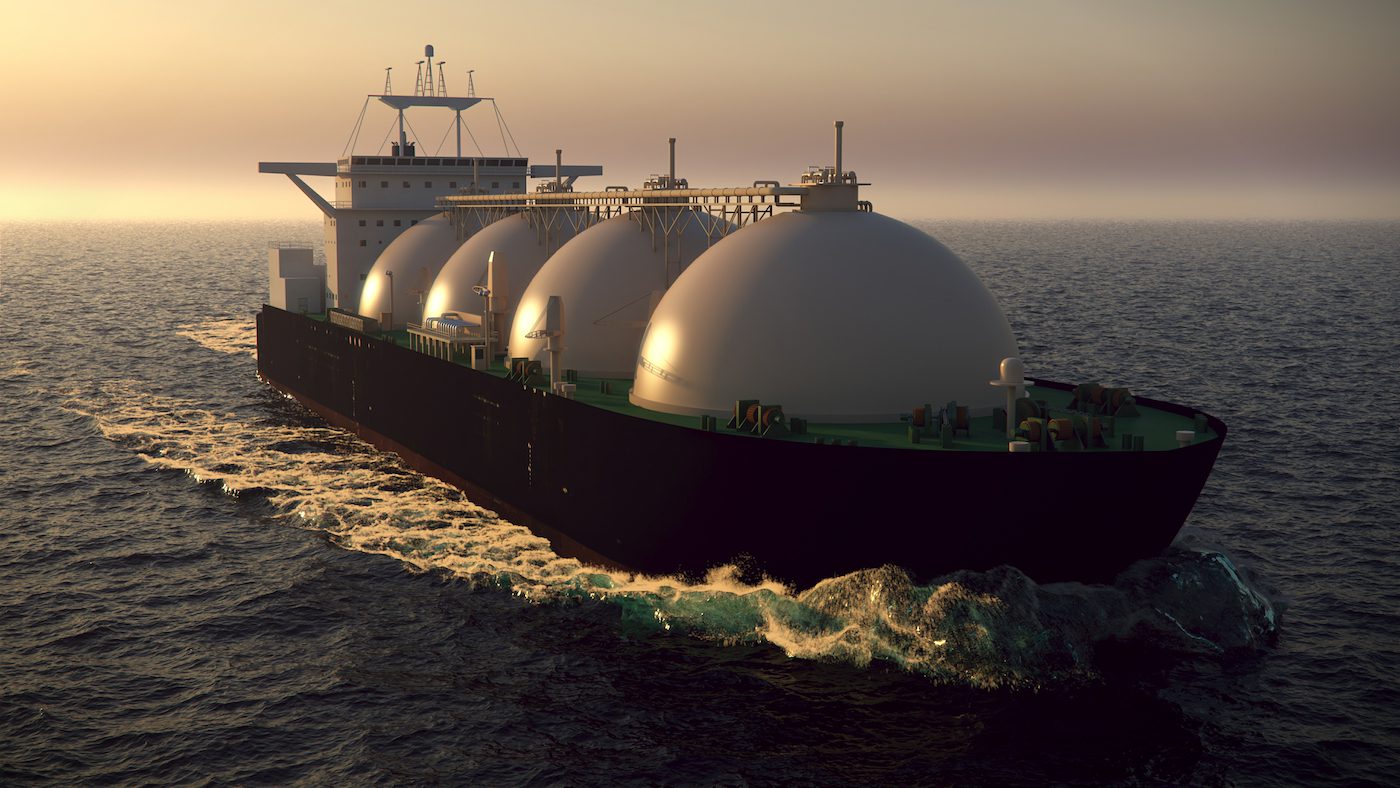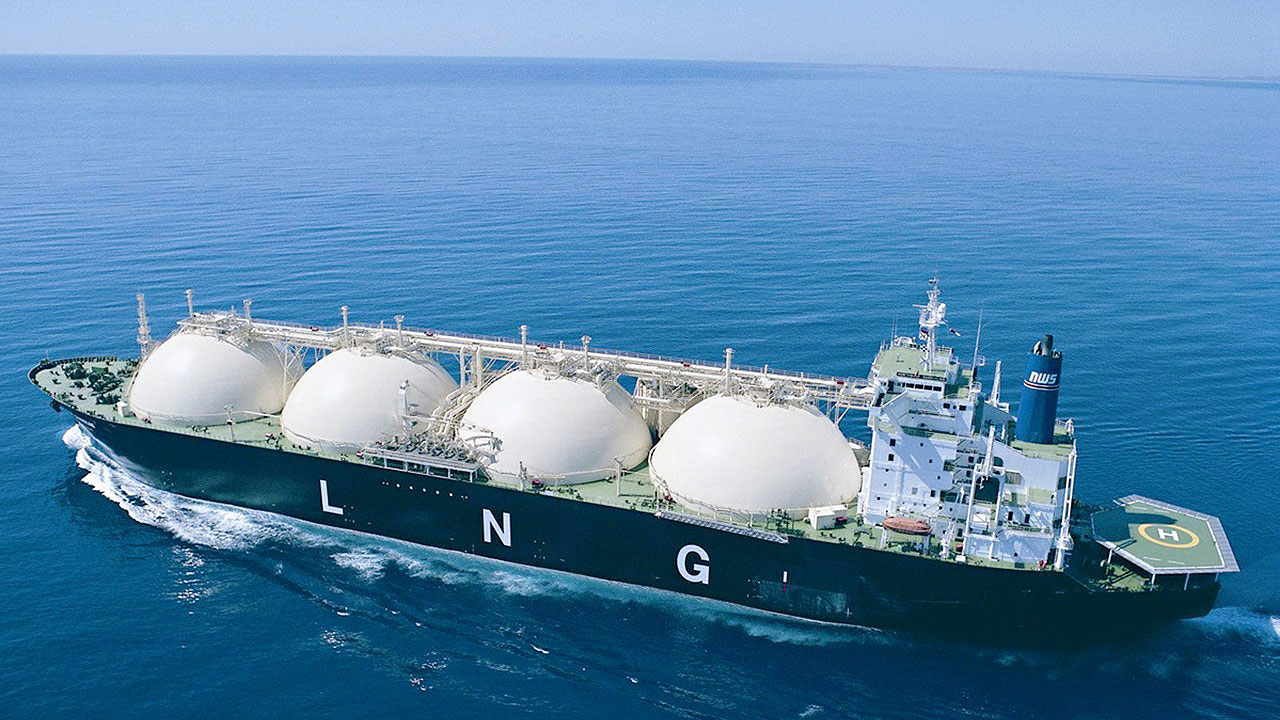LNG Trucks For Sale: Paving the Way for a Sustainable and Economical Future in Heavy Transport
LNG Trucks For Sale: Paving the Way for a Sustainable and Economical Future in Heavy Transport cars.truckstrend.com
The landscape of commercial transportation is undergoing a profound transformation. As environmental regulations tighten, fuel costs fluctuate, and corporate sustainability goals become paramount, businesses are increasingly seeking greener and more efficient alternatives to traditional diesel power. Among the most promising solutions emerging from this shift are Liquefied Natural Gas (LNG) trucks. Once considered a niche market, LNG trucks are now a viable, high-performance option for a diverse range of heavy-duty applications, offering compelling benefits for fleets and owner-operators alike. This comprehensive guide delves into the world of LNG trucks for sale, exploring their advantages, key considerations for purchase, and practical advice for making an informed investment in the future of transport.
Understanding LNG Trucks: A Primer
LNG Trucks For Sale: Paving the Way for a Sustainable and Economical Future in Heavy Transport
At its core, an LNG truck operates on liquefied natural gas, a cryogenic fuel stored in liquid form at extremely low temperatures (around -162°C or -260°F). Unlike Compressed Natural Gas (CNG), which is stored at high pressure, LNG offers a much higher energy density, meaning more fuel can be stored in a smaller volume. This characteristic makes LNG particularly suitable for heavy-duty, long-haul applications where extended range is crucial.
The fundamental components of an LNG truck include:
- Cryogenic Storage Tanks: Heavily insulated tanks designed to maintain the super-cold temperature of LNG.
- Fueling System: A specialized system that transfers LNG from the dispenser to the truck’s tanks.
- Vaporizer/Heat Exchanger: Converts the liquid LNG back into a gaseous state before it enters the engine.
- Natural Gas Engine: An engine specifically designed or adapted to run on natural gas, often a spark-ignited or high-pressure direct injection (HPDI) diesel-cycle engine that can utilize natural gas.

The operation is relatively straightforward: LNG is stored as a liquid, vaporized into gas, and then combusted in the engine, providing power similar to a diesel engine but with significantly different emissions profiles.
The Compelling Benefits of Investing in LNG Trucks
The decision to purchase an LNG truck is often driven by a combination of environmental responsibility and economic pragmatism. Here’s a breakdown of the key advantages:
Environmental Advantages
- Reduced Emissions: LNG trucks emit significantly less greenhouse gas (GHG) emissions, particularly carbon dioxide (CO2), compared to diesel. They also drastically cut down on nitrogen oxides (NOx), particulate matter (PM), and sulfur oxides (SOx), contributing to cleaner air quality, especially in urban areas.
- Quieter Operation: Natural gas engines are inherently quieter than their diesel counterparts, reducing noise pollution in residential areas and during night-time deliveries.
- Sustainability Image: Investing in LNG demonstrates a commitment to sustainability, enhancing a company’s public image and meeting increasingly stringent corporate social responsibility goals.

Economic Advantages

- Fuel Cost Savings: While natural gas prices can fluctuate, they have historically been more stable and often lower than diesel prices in many regions. This can lead to substantial long-term fuel savings for high-mileage operations.
- Potential Incentives and Rebates: Many governments and local authorities offer tax credits, grants, or subsidies for the adoption of cleaner alternative fuel vehicles, offsetting the initial purchase cost.
- Lower Maintenance Costs: Natural gas burns cleaner than diesel, leading to less engine wear and potentially extended oil change intervals, reducing overall maintenance expenses over the vehicle’s lifespan.
- No Diesel Particulate Filter (DPF) or Selective Catalytic Reduction (SCR) Systems: LNG trucks do not require the complex and costly after-treatment systems found in modern diesel engines, eliminating associated maintenance and downtime.
Operational Benefits
- Comparable Performance: Modern LNG trucks deliver torque and horsepower comparable to their diesel equivalents, ensuring they can handle demanding heavy-duty applications without compromise.
- Growing Infrastructure: While not as ubiquitous as diesel, the LNG fueling infrastructure is expanding globally, making it increasingly practical for regional and long-haul routes.
- Fuel Security: Natural gas is often sourced domestically, reducing reliance on foreign oil imports and contributing to national energy security.
Key Considerations Before Buying LNG Trucks
While the benefits are compelling, a prudent buyer must carefully evaluate several factors before committing to an LNG fleet:
- Fueling Infrastructure Availability: This is arguably the most critical consideration. Assess your typical routes and ensure there are sufficient LNG fueling stations within a practical range. For large fleets, investing in a private on-site fueling station might be a viable option.
- Upfront Acquisition Cost: LNG trucks typically have a higher initial purchase price than comparable diesel trucks. This premium must be weighed against potential fuel savings, incentives, and lower operating costs over the vehicle’s lifespan through a Total Cost of Ownership (TCO) analysis.
- Maintenance and Servicing Expertise: LNG systems require specialized knowledge for maintenance and repair. Ensure your chosen service provider or in-house technicians are certified and equipped to handle natural gas vehicles.
- Range and Payload: While LNG offers better energy density than CNG, the tanks are still larger and heavier than diesel tanks, which can slightly impact payload capacity and require careful route planning for optimal range.
- Driver Training: Drivers will need training on LNG fueling procedures and specific operational nuances of natural gas vehicles.
- Safety Protocols: LNG is a cryogenic and flammable fuel. Strict safety protocols for handling, fueling, and maintenance must be adhered to. Manufacturers and training programs provide comprehensive safety guidelines.
Types and Applications of LNG Trucks
LNG technology has matured to serve a wide array of heavy-duty transport needs:
- Long-Haul & Regional Haulage: Their extended range makes LNG trucks ideal for inter-city and inter-state freight transport, providing a cleaner alternative for logistics companies.
- Waste Management: Refuse collection vehicles often operate on fixed routes within urban areas, making them excellent candidates for LNG due to reduced emissions and quieter operation in residential zones.
- Port and Terminal Operations: Yard tractors and other heavy equipment in ports benefit from LNG’s lower emissions, contributing to cleaner air in busy maritime hubs.
- Construction and Mining: Certain specialized heavy-duty applications are also seeing the adoption of LNG, particularly where environmental regulations are strict or where a steady supply of natural gas is available.
Leading manufacturers like Volvo, Kenworth, Peterbilt, and certain European and Asian brands offer various LNG truck models, catering to different power requirements and configurations.
Navigating the Market: Tips for Buying LNG Trucks
Whether you’re looking for new or used, the buying process requires diligence.
- New vs. Used:
- New LNG Trucks: Offer the latest technology, full warranties, and often eligibility for the newest incentives. The upfront cost is higher.
- Used LNG Trucks: Can significantly reduce the initial investment. However, thoroughly inspect the cryogenic tanks, fuel system components, and engine for wear. Check service records meticulously. Ensure parts availability and specialized service support for older models.
- Total Cost of Ownership (TCO) Analysis: Go beyond the sticker price. Calculate projected fuel savings, maintenance costs, potential incentives, insurance, and residual value. A comprehensive TCO will reveal the true economic advantage.
- Evaluate Your Operational Needs: Match the truck’s specifications (engine power, range, payload capacity) to your specific routes and cargo requirements. Don’t over-spec, but ensure it can handle your most demanding tasks.
- Partner with Experienced Dealers: Choose dealerships with a proven track record in selling and servicing LNG trucks. They can provide valuable insights, financing options, and ongoing support.
- Consider Leasing Options: Leasing can offer flexibility, lower upfront capital outlay, and predictable monthly expenses, making it easier to integrate LNG technology into your fleet without a large initial investment.
- Pilot Program: For larger fleets, consider starting with a small pilot program to test LNG trucks on specific routes and gather data before a full-scale conversion.
Addressing Challenges and Finding Solutions
While LNG trucks offer significant advantages, challenges exist, but they are often surmountable:
- Limited Fueling Infrastructure: This is a common concern.
- Solution: Conduct thorough route planning to identify existing stations. Explore mobile LNG fueling services for specific projects. For high-volume operations, consider investing in your own private fueling station, which can offer significant long-term savings and convenience.
- Higher Upfront Cost: The initial investment can be a barrier.
- Solution: Actively research and apply for federal, state, and local incentives, grants, and tax credits designed to promote alternative fuel vehicles. Explore various financing and leasing options that spread the cost over time.
- Specialized Maintenance: Finding qualified technicians can be an issue.
- Solution: Partner closely with your truck manufacturer or dealership for maintenance support. Invest in training your in-house technicians through certified programs. Many reputable dealerships offer comprehensive service contracts for LNG vehicles.
Representative Price Table for LNG Trucks For Sale
Please note: The prices for LNG trucks can vary significantly based on manufacturer, model year, engine specifications, new vs. used condition, additional features, and market demand. The table below provides estimated ranges for illustrative purposes only and should not be taken as definitive market prices. Always request direct quotes from dealers for accurate pricing.
| Make/Model (Example) | Type (New/Used) | Application | Engine Power (HP) | Fuel Capacity (Diesel Gallon Equivalent – DGE) | Est. Range (Miles) | Est. Price Range (USD) | Key Features |
|---|---|---|---|---|---|---|---|
| New LNG Trucks | |||||||
| Volvo VNL 300 LNG | New | Regional Haul | 425-450 | 150-200 DGE | 600-800 | $180,000 – $250,000+ | Volvo D13-LNG engine, I-Shift transmission, enhanced safety features, telematics integration. |
| Kenworth T680 LNG | New | Long Haul | 400-500 | 170-250 DGE | 700-1000 | $190,000 – $260,000+ | Cummins Westport ISX12N engine, aerodynamic design, comfortable sleeper options, Bendix Wingman Fusion. |
| Peterbilt 579 LNG | New | Vocational | 400-450 | 150-200 DGE | 600-800 | $185,000 – $245,000+ | Cummins Westport ISX12N engine, versatile chassis for various body types, PACCAR MX engine options. |
| Used LNG Trucks | |||||||
| Volvo VNL 300 LNG | Used (3-5 yrs) | Regional Haul | 425-450 | 150-200 DGE | 600-800 | $80,000 – $140,000 | Good condition, lower mileage, potential remaining warranty, prior maintenance records crucial. |
| Kenworth T680 LNG | Used (3-5 yrs) | Long Haul | 400-500 | 170-250 DGE | 700-1000 | $90,000 – $150,000 | Well-maintained, suitable for fleets seeking cost-effective entry, inspect tanks thoroughly. |
| Peterbilt 579 LNG | Used (3-5 yrs) | Vocational | 400-450 | 150-200 DGE | 600-800 | $85,000 – $135,000 | Ideal for specific vocational applications, verify component life and service history. |
Note: DGE = Diesel Gallon Equivalent (measures the energy content of natural gas equal to one gallon of diesel).
Prices do not include taxes, delivery, or any potential government incentives/rebates.
Frequently Asked Questions (FAQ) about LNG Trucks For Sale
Q1: What is the typical range of an LNG truck?
A1: Modern LNG trucks can achieve ranges comparable to diesel trucks, typically between 600 to 1,000 miles on a single fill, depending on tank size, load, and driving conditions. This makes them suitable for most regional and long-haul applications.
Q2: Is LNG fuel cheaper than diesel?
A2: Historically, LNG has often been more affordable and less volatile in price than diesel. However, fuel prices fluctuate based on market conditions, supply, and demand. It’s crucial to compare current local LNG and diesel prices and factor in any potential carbon taxes or incentives.
Q3: Are LNG trucks safe?
A3: Yes, LNG trucks are designed and manufactured with rigorous safety standards. The fuel is stored in highly insulated, robust cryogenic tanks. Like any fuel, LNG is flammable, but its storage and handling systems incorporate multiple safety features, and natural gas is lighter than air, meaning it disperses quickly in the event of a leak. Proper training for drivers and maintenance personnel is essential.
Q4: What is the maintenance difference between LNG and diesel trucks?
A4: LNG engines typically have fewer moving parts in their fuel systems and cleaner combustion, which can lead to longer engine life and reduced wear on components. They do not require diesel exhaust fluid (DEF) or complex after-treatment systems like DPFs/SCRs. However, technicians need specialized training for the cryogenic fuel system and natural gas engine components.
Q5: Where can I find LNG fueling stations?
A5: The LNG fueling infrastructure is expanding, particularly along major trucking corridors. Online maps and apps provided by fuel suppliers (e.g., Shell, Clean Energy Fuels, Trillium) or industry associations (e.g., NGVAmerica) can help locate public LNG stations. Some large fleets also invest in private on-site fueling.
Q6: Do LNG trucks perform as well as diesel trucks?
A6: Yes, modern LNG trucks are engineered to provide comparable horsepower, torque, and pulling capacity to their diesel counterparts, ensuring they can handle the demanding requirements of heavy-duty transport, including challenging terrains and heavy loads.
Q7: Are there government incentives for buying LNG trucks?
A7: Many governments at federal, state, and local levels offer various incentives, including tax credits, grants, rebates, and low-interest loans, to encourage the adoption of alternative fuel vehicles like LNG trucks. These programs vary significantly by region and are subject to change, so it’s vital to research current opportunities.
Conclusion: A Strategic Investment for the Future
The move towards cleaner energy sources in transportation is not just a trend; it’s an imperative. LNG trucks represent a mature, high-performance solution that directly addresses the dual challenges of environmental responsibility and economic efficiency. While the initial investment may be higher, the long-term benefits – including significant fuel cost savings, reduced emissions, quieter operations, and an enhanced corporate image – offer a compelling return on investment.
For businesses looking to future-proof their fleets, comply with evolving regulations, and contribute to a more sustainable planet without compromising performance, exploring LNG trucks for sale is no longer an option, but a strategic necessity. By carefully considering the factors outlined in this guide and engaging with knowledgeable industry partners, you can confidently navigate the market and make an informed decision that drives your business forward into a greener, more profitable future.




